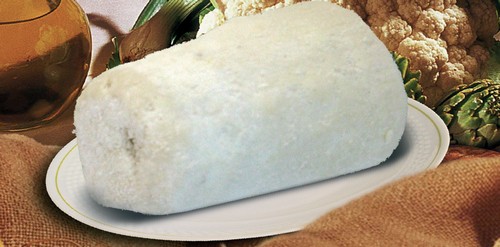Prodotti Tradizionali della Campania
Ricotta Salaprese

In tutta le zone della Campania ad alta pratica della transumanza, in particolare in provincia di Avellino, Caserta, Salerno, Benevento, si produce un tipo di ricotta detta “salaprese”. Non ci sono teorie certe intorno all’origine di questo nome, ma è presumibilmente collegato alla tecnica di conservazione del prodotto, sotto sale, una pratica molto utilizzata per conservare prodotti facilmente deperibili. Per produrre la ricotta si segue la tecnica classica, rimasta invariata negli anni, benché oggi si utilizzi indifferentemente latte ovino o bovino, mentre la tipica ricotta salaprese era ottenuta con solo latte ovino. Anticamente erano destinate alla salatura solamente le ricotte invendute, che venivano messe a essiccare all’aria in luogo fresco e asciutto dopo essere state passate ripetutamente con sale macinato a grani medi. L’essiccazione avveniva sotto teli di cotone per tenere lontane le mosche; una volta essiccate le ricotte venivano messe su appositi graticci o tavole e appese in ambienti freschi per evitare che potessero essere divorate dai topi.
![]() In
all the Campania areas where transhumance is common and in particular
in the provinces of Avellino, Caserta, Salerno and Benevento, a ricotta
called “salaprese” is produced. There are not certain theories
regarding the origin of this name, but presumably it is connected to
the preservation technique if the product, in salt, a practice that was
very common to preserve easily perishable products. The ricotta is produced
following the classic technique that has remained the same through the
years, although either cow or sheep milk can be used, while the typical
ricotta salaprese is obtained with sheep milk. Anciently only the ricottas
that were not sold were salted, they were left to dry in a fresh and
dry place after being passed through medium coarse salt. The drying was
performed under cotton cloths to keep the flies away; once dried the
ricottas were placed on racks or boards and hung up in a fresh place
to avoid them being eaten by mice.
In
all the Campania areas where transhumance is common and in particular
in the provinces of Avellino, Caserta, Salerno and Benevento, a ricotta
called “salaprese” is produced. There are not certain theories
regarding the origin of this name, but presumably it is connected to
the preservation technique if the product, in salt, a practice that was
very common to preserve easily perishable products. The ricotta is produced
following the classic technique that has remained the same through the
years, although either cow or sheep milk can be used, while the typical
ricotta salaprese is obtained with sheep milk. Anciently only the ricottas
that were not sold were salted, they were left to dry in a fresh and
dry place after being passed through medium coarse salt. The drying was
performed under cotton cloths to keep the flies away; once dried the
ricottas were placed on racks or boards and hung up in a fresh place
to avoid them being eaten by mice.